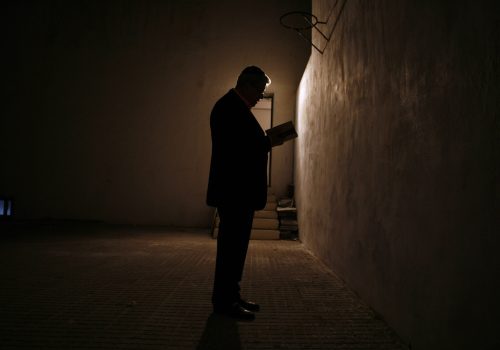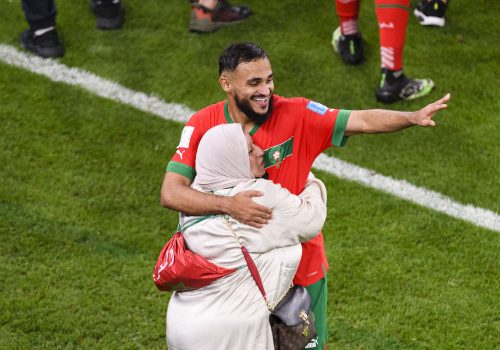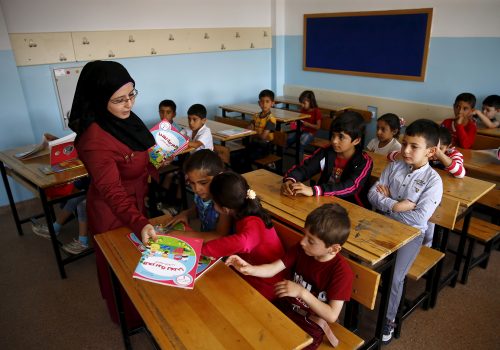Cultural exchange can foster a peaceful coexistence in the Middle East
Politics alone cannot resolve deep-seated historical, cultural, ideological, and socioeconomic conflicts. Nowhere is that more evident than the Middle East, where the host of contradictions and fault lines accumulated throughout decades, if not centuries, require a culture of peace to address them. An environment conducive to peaceful coexistence should be based upon and informed by agreed-upon values and guiding principles. These values and principles should clearly enunciate and elucidate the synergies and interconnections among culture, peace, security, and development. Culture can be the linchpin of this construct and a culture of peace approach addresses the root causes of conflicts, emphasizing the primary role of dialogue and cultural exchange and cooperation among individuals, groups, and nations.
This also calls for the consideration of the human factor. In dealing with conflicts in the Middle East and elsewhere we seem to be dealing with numbers and statistics rather than human beings. The human factor will help elucidate the hidden part of the problem which is deeply entrenched in the fears, apprehensions, perceptions, hopes and aspirations and counter-aspirations of those involved in this collective historical drama that has been ongoing for too long. And one causality in war and conflict is one casualty too many.
Culture is a catalyst, a matrix, and an incubator of soft power without which the engine of economic growth and hard power will lose its meaning, sense of purpose and sense of direction. It is for this reason that the alignment of cultural values through cultural exchange and a principled cultural dialogue can be a guarantor for sustainable peace and stability and for the building a commonality of purpose.
Cultural exchange is based on the will of individuals, groups, and nations to reach out to each other and better learn, or re-learn, to live together. This can involve the exchange of cultural symbols and artifacts, the alignment of historical narratives by revisiting controversial episodes of common history, offering reconciled versions to the new generations, the parameters of which are based on mutual understanding and respect, and recognition of the fact that difference in matters of faith, culture, and association is a basic human right.
The management of diversity at the national and regional levels is a challenge which is yet to be addressed. A conceptual framework is needed for a structured dialogue among the diverse social, ethnic, religious, cultural, ideological, and economic groups across the Middle East. The principles of mutual respect, equity, conviviality, solidarity, and dignity for all are the cornerstone for any attempts to bring the peoples of the Middle East closer together.
Cultural exchange is not only a matter for the elite, but it should seep down to the level of the grassroots to become a people-to-people initiative that involves civil society, youth and women groups, academicians, intellectuals, writers, scientists, students, artists, athletes, media operators, and business leaders and innovators. Security for all can be sought through new forms of security, which are not based on the sole physical security, but on the various aspects of human security, which include the recognition of the right of all to a dignified existence and secured living conditions.
The Middle East population is among the youngest in the world. Giving the younger generation the key to the future entails giving them the means of their future security, that of living in a region where peace, mutual understanding, and respect prevail.
The cultural dialogue can be structured in four levels, with due attention paid to the exchange of information and consultation across them:
- The policymaking and decision-making level, including parliaments and heads of governments, cabinets, etc.
- The institutional anchors, which include line ministries, departments, educational and training institutions, museums, research, and studies centers, etc.
- Grassroots and civil society organizations
- Public information, media, and social media, which will play a crucial role in informing (or disinforming) the public on cultural dialogue and other issues
The Abraham Accords Declaration signed at the White House on September 15, 2020, stipulates the following:
We encourage efforts to promote interfaith and intercultural dialogue to advance a culture of peace among the three Abrahamic religions and all humanity.
We believe that the best way to address challenges is through cooperation and dialogue and that developing friendly relations among States advances the interests of lasting peace in the Middle East and around the world.
We seek tolerance and respect for every person in order to make this world a place where all can enjoy a life of dignity and hope, no matter their race, faith or ethnicity.
We support science, art, medicine, and commerce to inspire humankind, maximize human potential and bring nations closer together.
The ball is now in the court of the signatories of the Accords to see to it that the tenets of the Accords do not remain empty words. In this connection, we should recall that dignity for all essentially includes the Palestinian people the rights of which should be protected and become part and parcel of the regional dialogue that the Accords are calling for. Otherwise, the Accords would not have achieved one of their basic precepts, that of: “tolerance and respect for every person in order to make this world a place where all can enjoy a life of dignity and hope, no matter their race, faith or ethnicity.”
Nureldin Satti is a former ambassador of Sudan to the United States and France. He is co-founder and co-chair of the Sudans Working Group at the Wilson Center in Washington.

The N7 Initiative, a partnership between the Atlantic Council and the Jeffrey M. Talpins Foundation, seeks to broaden and deepen normalization between Israel and Arab and Muslim countries. It works with governments to produce actionable recommendations to deliver tangible benefits to their people.
Further reading
Fri, Dec 2, 2022
Morocco is building bridges to connect its youth with its Moroccan Jewish cultural heritage. Here’s how.
MENASource By El Mehdi Boudra
Morocco’s continuation of decades-long efforts to safeguard the Moroccan Jewish heritage is integral to combating extremism and hatred and fostering interreligious dialogue.
Wed, Dec 14, 2022
Morocco’s World Cup victories are historical revenge for subaltern dreamers from the global south
MENASource By Sarah Zaaimi
The defeat-free journey of the Moroccan soccer national team, the Atlas Lions, is more than a simple sports score.
Sat, Dec 3, 2022
How an organization is promoting non-violence, tolerance, and peace in school education across the Middle East
MENASource By
The Institute for Monitoring Peace and Cultural Tolerance in School Education (IMPACT-se) brings a practical approach to the field of educational research and policymaking.
Image: Rugby Sevens - International Friendly - United Arab Emirates v Israel - Dubai Sports City, Dubai, United Arab Emirates - March 19, 2021 UAE and Israel players with the Abraham Accord Friendship Cup trophy REUTERS/Christopher Pike


